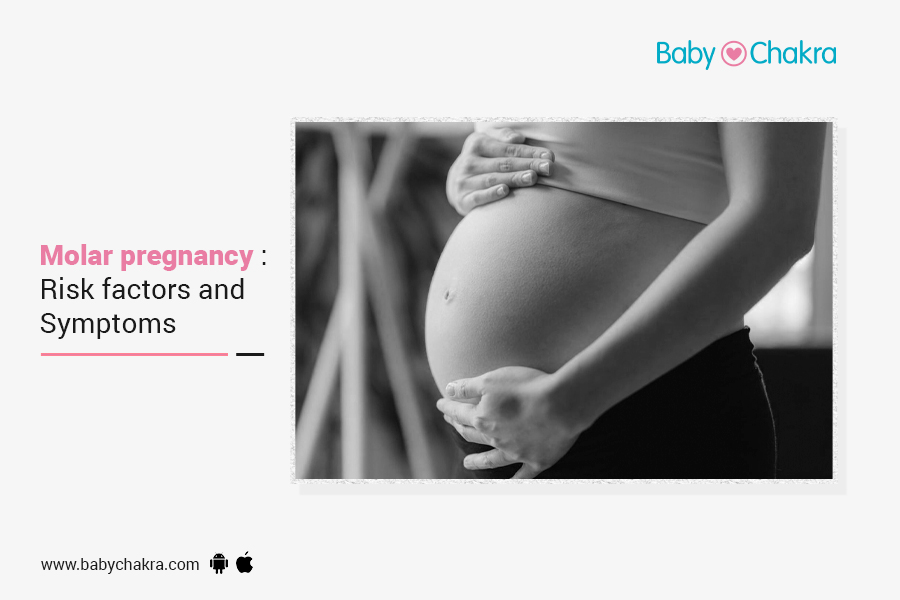
Molar Pregnancy: Risk Factors And Symptoms
14 Nov 2022 | 2 min Read
Seema Bhatia
Author | 29 Articles
Molar pregnancy is a rare pregnancy complication characterized by abnormal cell growth in the uterus. In a complete molar pregnancy, there is the absence of fetal tissue formation with the abnormal placenta. Whereas in partial molar pregnancy there could be an abnormal tissue formation in the placenta and abnormality in the formation of the fetus. A molar pregnancy can occur when there is a problem with the fertilized egg.
When it comes to the factors that increase the risk of a molar pregnancy, it could be
· The maternal age of the mother (above 35 and below 20 years)
· Previous history of molar pregnancy
· History of pregnancy loss
· Difficulties in conceiving / infertility issues.
A few of the signs and symptoms commonly found in molar pregnancy include:
· Severe episodes of nausea and vomiting.
· Severe pain in the pelvic area.
· Vaginal bleeding in the early pregnancy (first 3 months).
· Watery brown vaginal discharge.
· Rapidly growing uterus (larger in size than expected in the pregnancy stage)
· Grape cluster-like cyst/sacs passing from the vagina.
Women with a molar pregnancy may also suffer from
· Anemia
· High blood pressure or preeclampsia
· Hyperthyroidism or overactive thyroid
· Ovarian cyst formation
Molar pregnancy is difficult to survive and generally ends up in a pregnancy loss. Its important to consult the doctor on experiencing any of the above-mentioned signs and symptoms to avoid severe complications.
If you like the article, do rate us too on the google app store by using this link
A


Related Topics for you
Suggestions offered by doctors on BabyChakra are of advisory nature i.e., for educational and informational purposes only. Content posted on, created for, or compiled by BabyChakra is not intended or designed to replace your doctor's independent judgment about any symptom, condition, or the appropriateness or risks of a procedure or treatment for a given person.
